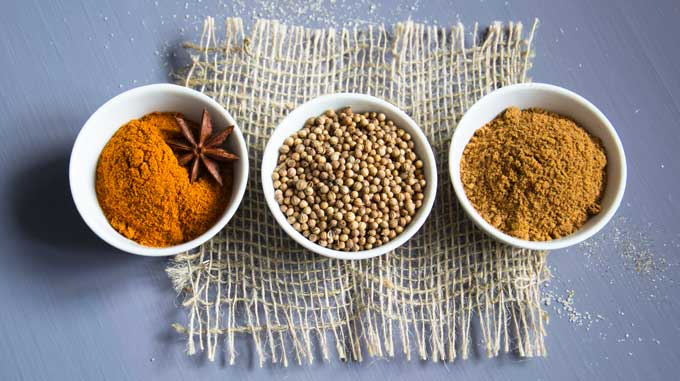Last Updated on December 3, 2023 by Cathy

Quality of life and disability is, unfortunately, a part of multiple sclerosis (MS). The risk of getting MS is relatively low. Unless you live further from the equator, are a woman, or have a genetic risk factor like having the gene “HLA-DRB1.”
MS is seldom fatal and the life expectancy is only shortened by a few months. But… it is the unknown and the disability patients fear the most. It is hard waking up in the morning and you’re facing another flare.
It doesn’t have to be this way! Did you know, that cleaning up your poor food choices and unhealthy lifestyle can lead to the remission of MS?
Processed foods and refined sugar create chronic inflammation throughout your body. Cut those out of your diet and start eating nutrient-dense foods instead. There is a list of the best foods for brain health at the bottom of this post.
“All disease begins in the gut.”
Hippocrates
What are antioxidants?
Antioxidants are compounds found in certain foods, they stop or delay the damage to our body’s cells. They protect us by removing waste products in our cells called free radicals. You get antioxidants from the food you eat. The more antioxidants you include in your diet, the more inflammation is removed.
Eat 9 cups of colorful vegetables and fruits each day. You will get a huge amount of nutrients, minerals, and vitamins. Vegetables should be your primary food. Especially vegetables from the cruciferous family such as arugula, broccoli, and cauliflower.
Foods with the most antioxidants:
- Artichoke
- Dark green vegetables
- Kale
- Grapes
- Red cabbage
- Strawberries
- Turmeric
- Walnuts
- Wild blueberries
High-Quality Fats
For decades we were told to cut out fat and eat a low-fat diet. All fats are not unhealthy. It was the sugar industry that paid Harvard researchers to cover up the fact that sugar was unhealthy. Instead, researchers started blaming fat as unhealthy and the cause of heart disease. That is when we shifted to a low-fat high-carb diet.
It’s not the amount of fat you need to be worried about, it’s the quality of fat that is important. There are two types of fats, omega-6 found in vegetable oils and omega-3 found in fatty fish like salmon. It is important to lower your omega-6 fats. Although some omega-6’s are still healthy such as sesame seeds, sunflower, and walnuts.
Omega-3 fats lower inflammation. It also lowers the risk of heart disease, cancer, and autoimmune diseases. Our brain works best when we are eating healthy fats such as omega-3.
Healthy fats:
- Almonds
- Avocados
- Chia seeds
- Coconut
- Ground flaxseed
- Herring
- Mackerel
- Olive oil
- Salmon
- Sardines
- Walnuts
The American Heart Association claims coconut oil is unhealthy. They recommend processed vegetable oils like canola. Unfortunately, they get their funding from corporations that sell processed foods.
Coconut oil is a brain-healthy saturated fat that improves cognition and regulates inflammation. It also has high-quality fats that benefit the brain and nerves the most. When buying coconut milk make sure it’s the full-fat and unsweetened version.
Versions of coconut:
- Flakes
- Flour
- Milk
- Oil
- Water
Go Low Carb
Most processed foods have refined sugar hidden in them. Food manufacturers give them different names so you don’t know what you are eating. Too much sugar increases insulin and inflammation, and it impairs our cognitive skills. That is why Alzheimer’s is sometimes called “Type 3 Diabetes.”
Sugar is addicting making you crave more. Over time the higher levels of glucose (sugar) harm our blood vessels and can cause brain shrinkage. Sugar also feeds bad bacteria, yeast overgrowth, and parasites. These are all possible triggers for MS.
Triggers to MS:
- Diet (processed foods, refined sugar, refined carbs, food allergies, etc.)
- Infections (Candida, viruses, bacteria, and parasites)
- Environmental Toxins (heavy metals, mold, pesticides, plastics, etc.)
- Chronic Stress
- Genetics
It’s best to remove ALL refined sugar and lower natural sugars like fruit. There are different ways to keep track of your blood sugar levels.
- A glucose meter (diabetic meter)
- A1C blood test every three months, 5.0 is optimal
- Counting carbs, and staying below 60 grams each day is best
- The ketogenic diet, keeping carbs below 20 grams each day
Protein
Your body uses protein to build and repair tissues, it also helps keep your blood sugar level. Protein is important for bones, cartilage, muscles, organs, and brain health, protein is crucial for good health. The best sources of protein are beef, poultry, fish, nuts, and seeds. High-quality protein is best to avoid growth hormones, antibiotics, and toxic chemicals.
Eggs are another good source of protein but you may want to avoid them until you’ve healed. In the book The Wahls Protocol, Dr. Terry Wahls recommends people avoid eggs. They are one of the most common foods to cause an allergic reaction.
Best choices for protein:
- Almonds
- Broccoli
- Brussels sprouts
- Pumpkin seeds
- Organic grass-fed meat
- Organic pasture-raised poultry
- Wild-caught fish
Herbs for Health

People have used herbs and spices for medicinal purposes for thousands of years. They have many powerful health benefits including ones with anti-inflammatory effects. Turmeric and its most active compound curcumin is a powerful herb for brain health. It improves the function of neurons and supports their growth.
Use many different herbs and spices and mix them together. Cinnamon helps lower blood sugar and ginger helps digestive issues. Basil, parsley, and cilantro reduce inflammation. It also supports the liver and helps remove heavy metals from your body.
Garlic contains powerful compounds for many different ailments. Including the common cold, reducing blood pressure, detoxifying heavy metals, and much more. Garlic is known as an anti-bacterial, antifungal, and anti-parasitic. There are even studies showing garlic may prevent some cancers.
Oregano is also used for many health conditions it’s used as a powerful anti-inflammatory. Oregano oil is a natural antibiotic used for respiratory and urinary tract infections. Herbs and spices are an excellent benefit for your health. But, when taken in large doses they may interfere with certain medications. Always talk to your doctor about any possible interactions.
Lifestyle Factors for Optimizing Brain Health
Dietary factors are only one part of the puzzle. You should consider other lifestyle habits as well. Such as lack of exercise, smoking, and stress. Studies show that staying stationary is harmful to the brain and overall health. As the saying goes:
Use it or lose it
Exercise also helps reduce stress, improves sleep, and improves your mood. It doesn’t matter if you’re still walking or you’re in a wheelchair there is an exercise program to fit your needs. If you haven’t checked out OptimalBody Personal Fitness – this is what I use.
Quick Links to information in this post:
DNA Test for Multiple Sclerosis
What is SIBO?
MS and Candida Overgrowth
Benefits of Oregano for Your Health
You are what you eat
Grocery shop around the perimeter of the aisles. This is where you will usually find unprocessed foods. Be adventurous and try a new vegetable, it may become your favorite. Visit your local farmers market. Foods that are organic and local have high amounts of nutrients.
Start eating slowly and chew your food thoroughly to help your digestive tract. Don’t eat when you’re stressed instead relax and take time to enjoy your food. Food provides you with nutrients but it also offers you time to connect with your loved ones.

Get Your Best Foods for Brain Health
Get the password for the library with my Best Foods for Brain Health here by filling out this form:
Want to remember this? Pin it to your favorite Pinterest board!






